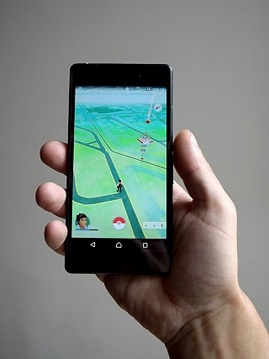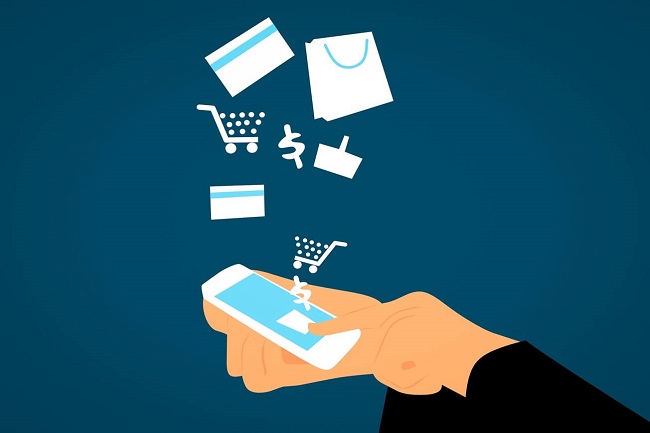You may have noticed that Facebook has been rebranded to Meta, and the reason for this is that it seeks to embrace the metaverse. The topic of metaverse has become increasingly popular as of late – and for all of the right reasons. The metaverse refers to a new era of digital technologies and is set to change the world of marketing as we know it.
What is the metaverse?
Well, this is the million-dollar question. And it is a rather vague answer as it refers to multiple technologies. Essentially, the metaverse is a world within cyberspace. It can refer to virtual reality and virtual worlds that you can explore in video games and even on social media. It can even include augmented reality for marketing – there are honestly so many aspects to the metaverse that it can be tricky to name them all. However, the mention of AR and VR should paint a clearer picture of what it can encompass. On that note, it is worth mentioning that it is not only limited to these examples either.
Key technologies that make metaverse a reality
The technologies currently powering the metaverse include augmented reality (AR), virtual reality (VR), mixed reality (MR), and artificial intelligence (AI). These technologies are then added to existing software and application to provide a next level, fully immersive digital experience.
In recent times, these technologies have become more popular as people practice social distancing and spend more time at home. Think about how online events have taken over and how many service providers have opted to offer digital consultations – and that isn’t even the tip of the iceberg! We then need to determine how metaverse SEO differs from what we’re used to, and more importantly, use this to drive the uptake of this innovative technology.
Building a metaverse through AR/VR products
When it comes to brands using a metaverse marketing campaign to share their products and service offering, one of the first to come to mind is Fortnite. Fortnite is a virtual world accessible through the use of gaming consoles, PCs and even mobile devices. World of Warcraft is another great example of the metaverse in the real world.
In addition to this, Fortnite also has created its own digital economy, where users can create things, buy things and even sell things. With the rise of the metaverse, there are hopes of having these different online worlds become interoperable.
This will mean that you can have your items from one world transferable to another with the click of a button. Your virtual identities and avatars can become their own persona that can be used within the metaverse. Across different games, social media platforms and other online forums, you could have the same persona.
Of course, the equivalent of saying Fortnite and World of Warcraft are the metaverse is much like labelling Google as the internet. This comparison helps to simplify matters while providing a scale for the metaverse. Just like different browsers form part of the internet, all of these online worlds form part of the greater metaverse. And this is where brands have the opportunity to become part of something much bigger.

A new approach to healthcare
One of the more life-changing ways in which the metaverse is currently being utilized is through the healthcare system. AI technology is used to facilitate virtual consultations with doctors and other healthcare providers, while AR and MR are being used to help train first responders wherever they may be.
This unrestricted approach to healthcare and related training has made the world of difference during the pandemic as it has bridged the gaps that existed when it came to accessing basic healthcare. These types of metaverse examples showcase the diverse nature of this technology.
How brands can leverage metaverse
Many brands have already taken note of the fact that their audiences, especially the younger generation, are looking for shared social environments as well as larger than life virtual experiences.
When it comes to the metaverse for brands, it’s not about entering an existing world, but rather helping brands to build these interactive spaces. In doing so, they not only build a relationship with the brand, but also a sense of loyalty, trust and ownership.
User-generated platforms such as Minecraft and TikTok have already embraced this form of co-creation. A community is built around common interests and showcasing their unique identity within the space. Forward-thinking brands should leverage these types of co-creation facilities to provide a unique experience that fosters self-expression as well as group participation.
As you can see, the common theme is being part of something bigger, without losing your sense of identity. This forward-thinking is appealing to a tech-savvy, younger audience that has become accustomed to using innovative technologies that blur the lines between real-life and fantasy. This next-level for, of interactivity, is opening the door for brands to interact with their customers in creative new ways.
But how will metaverse change marketing?
To answer this question, let’s take a look at some of how brands can leverage this technology to their benefit.
Avatars and accessories
Creating avatars and offering shopping for avatars across the worlds. This is because it’s important to customize your avatar to make it unique. Brand mascots, fashion clothing, and accessories are now purchased through NFT brands directly in stores around the world.
NFT collections
Do you remember Pokémon cards? How about baseball cards? Do you remember how you collected all the different Happy Meal toys as a kid? NFTs follow the same concept, allowing you to collect without storing physical objects that take up space.
eCommerce
In the game and the virtual world, eCommerce is on the rise. They provide opportunities for consumers to shop within the worlds and open up another shopping channel as well as a unique consumer experience to connect with the brands.
Live, virtual events
Brands use the metaverse worlds to host events – locally and globally. Live music performances, interviews with artists, meetings and greetings, film screenings, and album auditions. Brands benefit from a platform to reach a worldwide audience with a unique experience.
Of course, to leverage these elements, brands need to develop a marketing strategy that raises awareness and drives consumer engagement. By linking this to your content strategy, you can encourage your audience to explore the digital side of your brand while building stronger customer relationships.
Metaverse stats that tell a story
Sometimes, there are simpler ways to show just how important and valuable something is. In this case, we’ll be sharing some facts and figures related to the metaverse that will tell a story.
- Global spending on VR/AR is expected to reach $72.8 billion in 2024
- Facebook is investing $10 billion into the metaverse
- 38% of American adults don’t know what the metaverse is
- 83.7 million people in the US made use of AR at least once a month in 2020
- 10.7 million people have participated in online Fortnite concerts
- $652 million has been spent on Roblox currency
The challenges that metaverse has to overcome
It’s clear to see the benefits that the metaverse can offer brands and individuals alike when used correctly. However, to do so, there are a few technological barriers that need to be addressed.
To start with, out of the 7.753 billion people in the world, only 4.88 billion people use the internet. While this is still a decent number of users, it only covers just over half of the world, leaving the other half out when it comes to internet-related experiences.
Continuing on this thought is having access to the right technologies to power this digital world, which includes a reliable internet connection, which is once again not readily available.
Above and beyond this, there’s an educational element that needs to be addressed. Many people are not tech-savvy and will require some form of training to be able to access the metaverse and use it to their advantage.
Another challenge is, of course, the monetary aspect in that not many brands have the budget to implement this type of marketing experience. However, as these technologies continue to advance and become more readily available we can expect the costs involved to drop.
Now is the perfect opportunity to adopt metaverse
With the metaverse evolving and technologies slowly being made available, an opportunity exists for brands to get on board with this trend before their competitors. By using this time to your advantage, you can build up the skills and experience needed to dominate the metaverse and deliver the ultimate metaverse customer experience.




